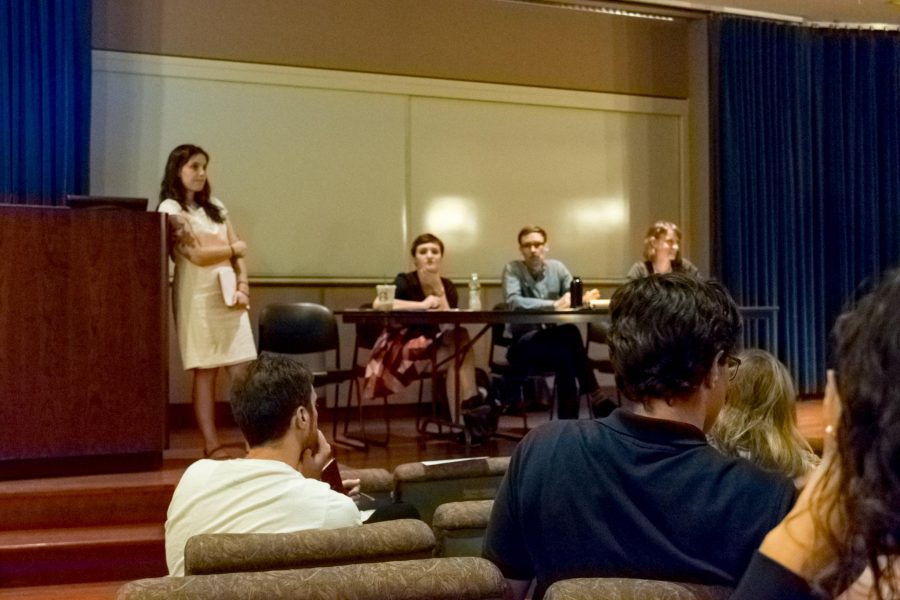Graduate Student Health Coverage Changing Nationally
By Theresa Schliep
Since the ACA was enacted in 2010, the landscape of graduate student health care has changed. Concerns over whether or not the ACA would permit universities to continue to offer healthcare subsidies to graduate students to participate in Student Health Care Insurance Plans (SHIPS) recently subsided when various government departments issued guidance notifying them that they could continue to do so.
Fordham can currently cover 64 percent of Aetna’s $2544 premium with a subsidy, which should continue to be available for about a year, according to Eva Badowska, dean of the Graduate School of Arts and Sciences (GSAS). Potential increases in the cost of insurance premiums due to the ACA might impede the ability of university’s across the country to offer subsidies.
“While the regulatory landscape has been clarified for now, the cost of SHIPs continues to rise and the university has, in recent years, experienced difficulty in securing affordable options with good coverage,” outlined a document released by GSAS in late October announcing the guidance document released by the U.S. Department of Health and Human Services, the U.S. Department of Labor and the U.S. Department of the Treasury.
Badowska said this is both an issue of social justice and an issue of maintaining enrollment at GSAS. An inability to offer subsidies to graduate students can result in students attending other universities for their graduate education.
“We are absolutely conscious of how important this is and that it is the right thing to do,” said Badowska.
Universities struggle to afford these subsidies partly because the cost of premiums has increased. Expenses due to mental health and reproductive health for this age range, as well as expenses relating to treating graduate students as individuals instead of groups, discourage competition. Consequently, there is decreased competition amongst insurers, according to Badowska.
Before the ACA was enacted in 2010, GSAS offered subsidies as a part of their admissions package to the university. But in 2013, the Internal Revenue Service (IRS) issued guidance saying universities could no longer offer these subsidies.
Universities across the country struggled to decide whether to suspend their subsidies. If universities continued to offer subsidies, they could face significant fines. But the repercussions of halting subsidies or other programs like these subsidies were severe. For instance, the University of Minnesota terminated their subsidies, and faced a planned graduate student worker walkout. The university eventually reinstated the subsidies.
In Feb. of 2016, the IRS issued transitional relief for graduate student heath care coverage. Then, in late Oct. 2016, the Department of Health and Human Services, the Department of Labor and the Department of the Treasury released a notice that said it was the intention of the ACA to “preserve the ability of institutions of higher education to continue offering student health insurance plans otherwise permitted under applicable Federal, State or local law,”
Badowska said the subsidies are safe for the next year or so, and GSAS is committed to continuing these subsidies in the future. But she is not sure how universities across the country will keep up with the increasing premium costs.
The ACA was intended to improve SHIPS, through the prohibition on annual dollar limits and the requirement to provide certain preventative health services without costs.
Malkah Bessler, a P.h. D. English student, president of the Graduate Students Association, said she noticed these improvements in her time at the university.
“To be honest, the health insurance wasn’t great,” said Dressler about the insurance when she first enrolled. “A lot of people didn’t take it, but since I’ve been at Fordham every year it’s gotten every better and better. It’s not perfect, but it’s a marked improvement.”
Dressler said she also believes it is a social justice issue, especially considering there is a debate over whether or not graduate students, who she said work teaching and doing research, are considered employees.
Dressler said students are temporarily relieved that they will continue to receive subsidies.
Uncertainty has only grown, though, with the election of Donald Trump, who campaigned against the ACA and said he would repeal the act. However, he has recently backtracked, and said he may keep facets he finds favorable, such as the clause that prohibits insurers from discriminating against those with pre-existing conditions.










































































































































































































